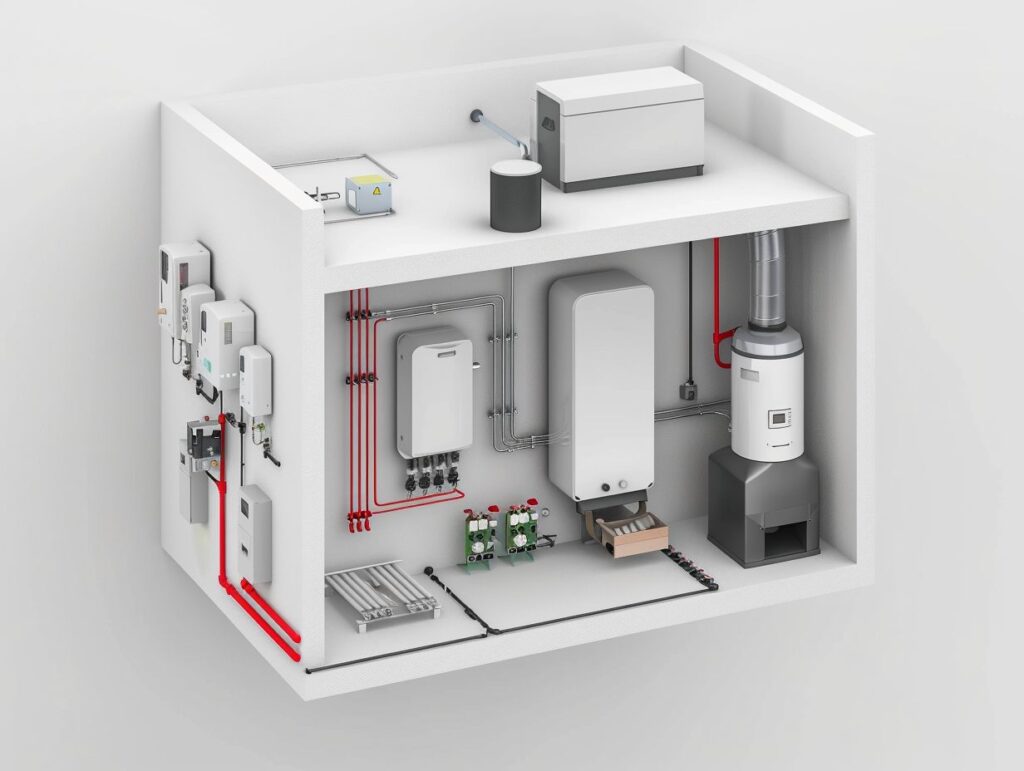If you are seeking an efficient and cost-effective heating system for your home, dual fuel heating could be the ideal solution for your needs. This article will delve into what dual fuel heating entails and its operational mechanisms, providing a comparison with other heating methods.
Additionally, the discussion will cover the advantages of dual fuel heating, such as cost-effectiveness, energy efficiency, and environmental considerations. The installation and maintenance procedures will also be addressed to assist you in deciding whether dual fuel heating aligns with your requirements.
Key Takeaways:
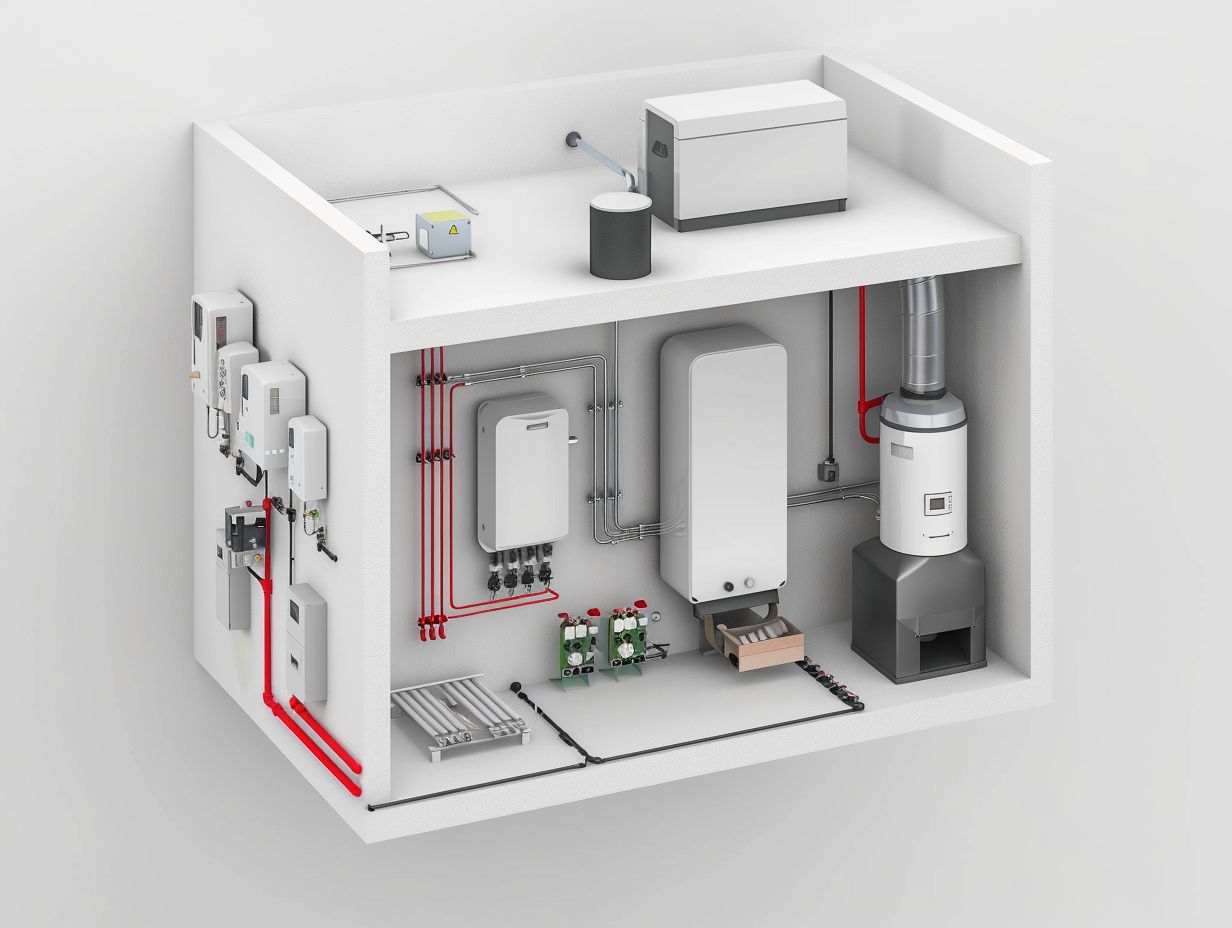
- Dual fuel heating is a system that combines two fuel sources, usually electricity and gas, to provide efficient and cost-effective heating for homes and businesses.
- This system works by automatically switching between the two fuel sources based on external temperatures and energy prices, optimising energy usage and reducing costs.
- Dual fuel heating offers numerous benefits including cost savings, energy efficiency, and reduced environmental impact, and it may be a suitable option for those looking for an alternative to traditional heating methods.
What is Dual Fuel Heating?
Dual Fuel Heating is a system that combines two different energy sources, typically gas and electric, to provide efficient heating for homes. This system offers you flexibility in choosing between gas-powered or electric heating based on your needs and cost-effectiveness.
By utilising the strengths of both gas and electric heating elements, dual fuel systems can optimise energy usage and reduce operational costs.
In colder weather, gas heat is more effective and economical, whereas electric heat is cleaner and better for milder temperatures. The ability for you to switch between these sources depending on external conditions makes it a popular choice for residential heating.
Dual fuel systems also contribute to overall energy efficiency and environmental sustainability by maximising the utilisation of cleaner energy sources when possible.
How Dual Fuel Heating Works?
To understand how Dual Fuel Heating operates, you need to explore its components. This system typically combines a heat pump with a gas furnace or electric system to provide heating output efficiently and effectively.
The heat pump acts as the main heating source, with the gas furnace or electric system acting as a backup depending on the heating demand and efficiency criteria.
Overview of the System
The Dual Fuel Heating system presents a versatile solution for your residential heating requirements. This system integrates central heating mechanisms that combine energy sources, such as a gas-powered boiler and electric heating systems, to effectively disperse heat throughout your home.
The central unit of this system, typically a gas-powered boiler, guarantees the circulation of hot water to radiators, wall-mounted heaters, and even heated towel rails found in bathrooms.
Electric heating systems serve as an additional heat source, offering warmth as needed. The gas-powered boiler functions as the primary element, heating water that then flows through pipes to disperse heat.
Strategically placed radiators emit the generated warmth, while wall-mounted heaters provide localised heating. The presence of heated towel rails in bathrooms ensures comfort, even on cold mornings.
This well-coordinated allocation of heat across various components guarantees consistent warmth and comfort throughout your entire household. This efficiency makes the dual fuel heating system an ideal and dependable choice for homeowners.
Comparison to Other Heating Methods
When compared to traditional central heating systems, Dual Fuel Heating offers you improved energy efficiency and heating output. Unlike standalone gas furnaces or electric heat systems, the dual fuel approach enhances your heating performance while potentially reducing your utility bills and environmental impact.
By combining the benefits of gas furnaces and electric heat sources, dual fuel heating systems provide you with a versatile and cost-effective solution for optimising your home heating. The use of both gas and electric components allows for better heat distribution and more precise temperature control, resulting in a more comfortable living environment.
This hybrid approach offers you the flexibility to choose the most cost-effective energy source based on utility rates or environmental considerations, leading to significant savings over time. The combination of gas and electric heating can help lower greenhouse gas emissions and promote a more environmentally sustainable heating solution.
Benefits of Dual Fuel Heating
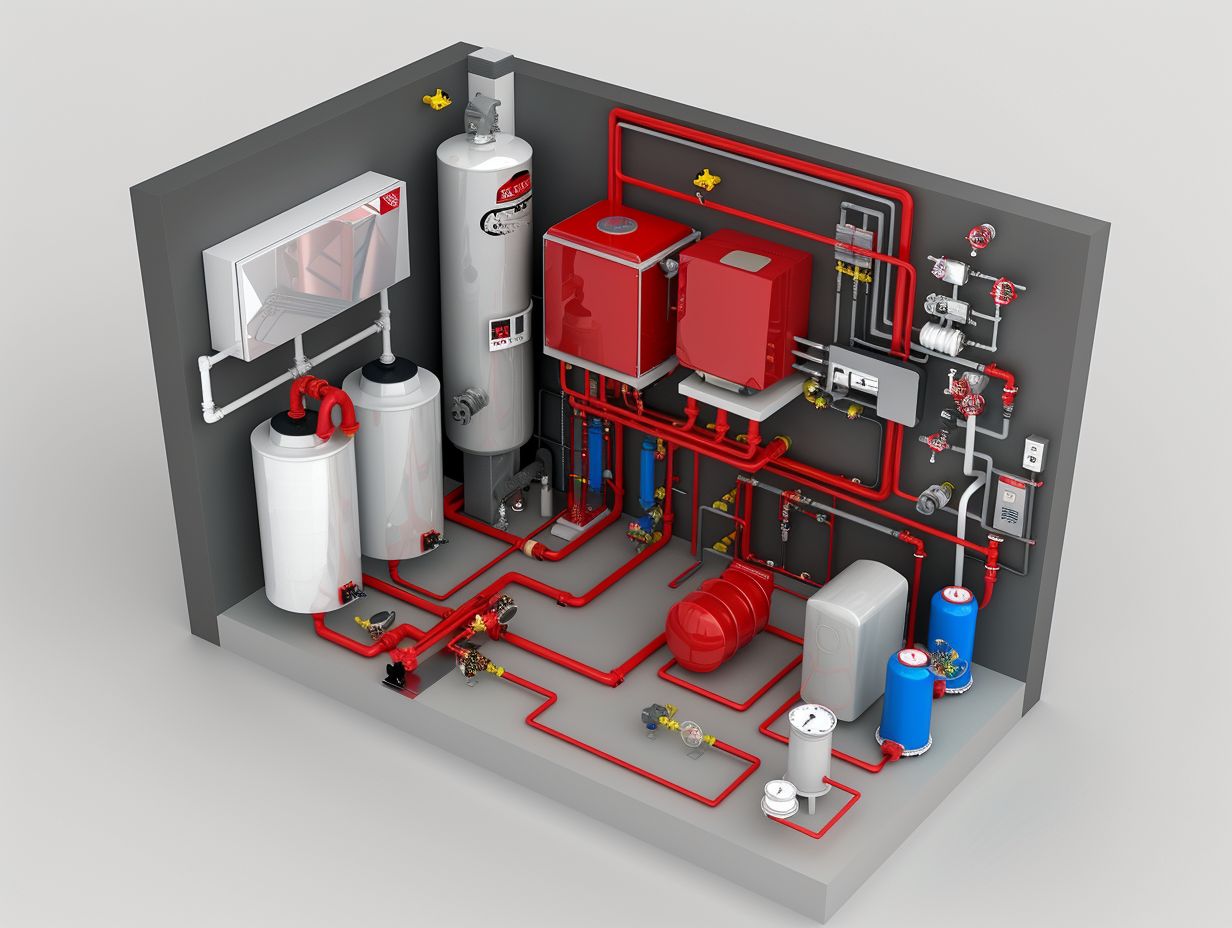
Using a dual fuel heating system offers you a variety of advantages, such as cost savings, increased energy efficiency, and minimised environmental footprint.
By integrating this dual heating system, homeowners like yourself can experience reduced utility expenses, elevated comfort levels through high-efficiency heating, and play a role in fostering a more environmentally sustainable living space.
Cost Savings and Energy Efficiency
One of the significant benefits of Dual Fuel Heating is the potential for cost savings and improved energy efficiency. You can benefit from reduced utility costs, especially in regions with fluctuating energy prices.
The system’s high-efficiency operation may qualify you for federal tax credits, providing further savings and incentives.
This dual-system technology allows households to optimise energy usage by automatically switching between electricity and gas based on cost-effectiveness, ensuring that the most cost-efficient option is chosen at any given time.
By harnessing this flexibility, you can enjoy year-round savings on your heating bills while also reducing overall energy consumption. The substantial financial benefits of dual fuel heating extend beyond reduced monthly expenses, potentially give the power toing you with increased long-term savings and investment opportunities.
Environmental Impact
Dual Fuel Heating systems have a positive environmental impact by promoting the use of eco-friendly and green energy sources.
By combining gas and electric heating sources, the system reduces carbon emissions and supports sustainable heating practices, aligning with efforts to minimise the ecological footprint of residential heating solutions.
The integration of dual fuel components not only results in lower greenhouse gas emissions but also facilitates a more energy-efficient heating process. The ability to switch between gas and electricity based on demand helps in optimising energy consumption and reducing overall energy wastage.
The flexibility provided by dual fuel systems encourages homeowners to make environmentally conscious choices while also enjoying the reliable and effective heating it offers. This shift towards dual fuel heating demonstrates a commitment to sustainable living practices that benefit both individuals and the planet.
Installation and Maintenance of Dual Fuel Heating
When installing and maintaining Dual Fuel Heating systems, you must approach it with careful planning and consideration, particularly in diverse climates. Proper installation is crucial for achieving optimal performance and energy efficiency, while regular maintenance plays a key role in preventing breakdowns and reducing utility costs in the long run.
Process and Considerations
In terms of installing a Dual Fuel Heating system, you should engage a qualified electrician to handle the electrical connections and system setup.
It is important for homeowners to carefully consider their budget constraints and weigh the long-term benefits of dual fuel systems before proceeding with the installation.
Understanding the key considerations in this process can assist you in making well-informed decisions for efficient heating solutions. During the installation process, one of the critical aspects to remember is the significance of having a certified electrician manage the setup.
This ensures that the electrical connections are installed correctly, guaranteeing a safe and efficient operation of the dual fuel system.
Additionally, it is essential to take budget limitations into account. While investing in a dual fuel heating system may involve upfront costs, the energy efficiency of this system can lead to cost savings in the long run.
By carefully assessing the upfront expenses in relation to the long-term advantages, you can make a prudent decision that aligns with your heating requirements and financial objectives.
Is Dual Fuel Heating Right for You?
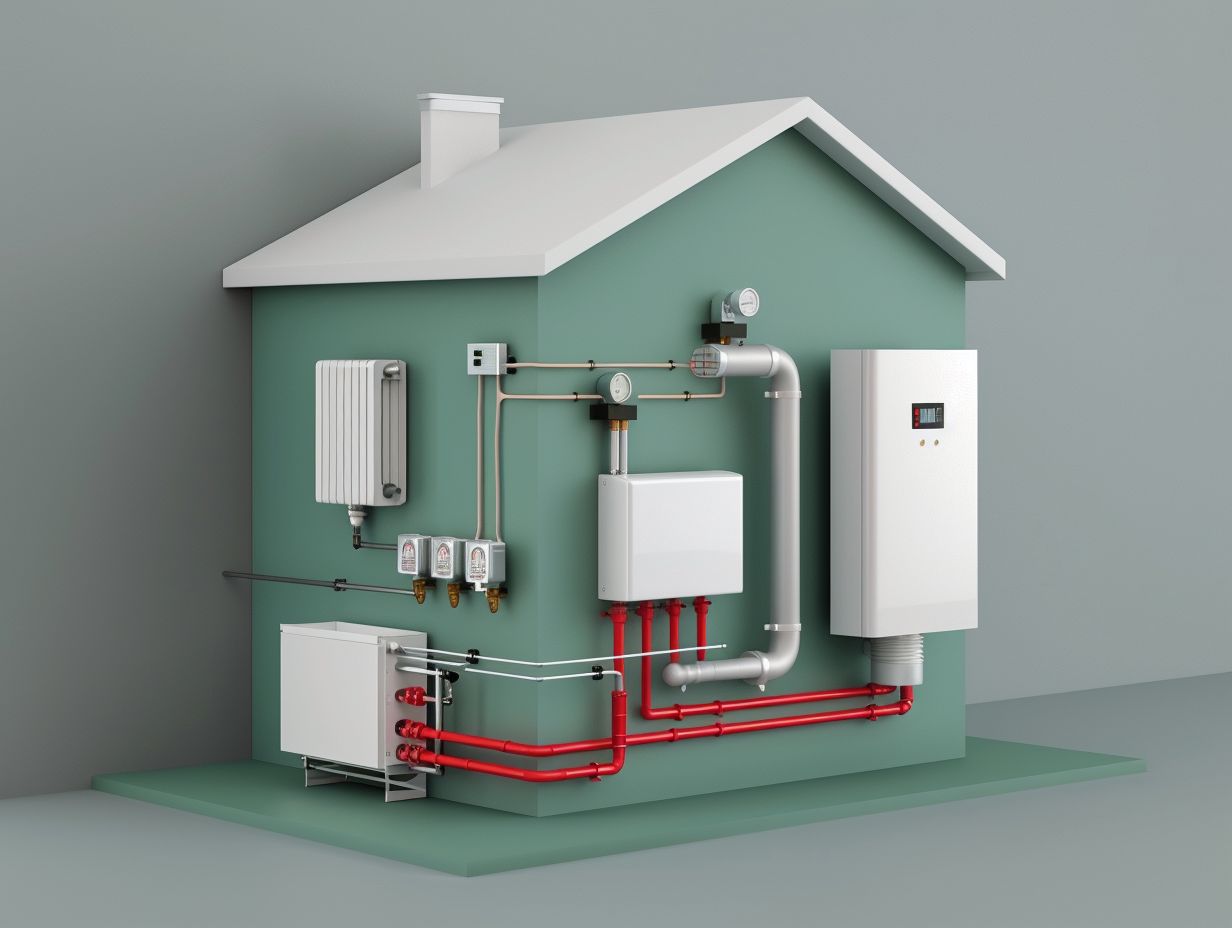
To determine if Dual Fuel Heating is the appropriate choice for your home, you must evaluate various factors and compare alternative heating options. Considerations such as the availability of gas supply, heating demands, and the overall cost-effectiveness of dual fuel systems are crucial in determining the suitability of this heating solution.
Factors to Consider
When contemplating Dual Fuel Heating, you should consider your specific heating demands, the heating duties of the system, and the compatibility with existing gas systems. Understanding your heating requirements and system operation can aid in determining the effectiveness and practicality of dual fuel heating for your individual heating needs.
Assessing the integration of dual fuel heating with your existing gas systems is crucial to ensure seamless operation and cost-effectiveness. Compatibility between the two systems is essential for efficient utilisation of resources and heating output optimisation.
Evaluating the overall efficiency of the combined heating setup helps in creating a personalised heating solution tailored to the specific requirements of your household, leading to enhanced comfort and energy savings. Taking these critical factors into account allows homeowners to make informed decisions when considering the installation of dual fuel heating systems.
Alternate Heating Options
Along with Dual Fuel Heating, homeowners like you have alternative heating options to consider, such as traditional boiler systems and standalone electric heating solutions. Each option presents unique advantages in terms of efficiency, utility bills, and heating performance, necessitating a comparative evaluation to identify the most appropriate choice.
Traditional boiler systems are renowned for their reliability and consistent heat output, making them well-suited for larger homes or those located in colder climates. Conversely, standalone electric heating solutions often offer greater upfront cost-effectiveness and can be easier to install in smaller spaces.
When assessing efficiency, it is important to note that boilers may incur higher operational costs due to fuel consumption, whereas electric heating could be pricier per unit of heat produced. As a homeowner, you should carefully consider your heating preferences, space requirements, and long-term cost implications when deliberating between these heating alternatives.
Frequently Asked Questions
What is Dual Fuel Heating?
Dual Fuel Heating is a type of heating system that utilises two different energy sources to heat a home or building. Typically, one source is electricity and the other is a fossil fuel like natural gas or propane.
How does Dual Fuel Heating work?
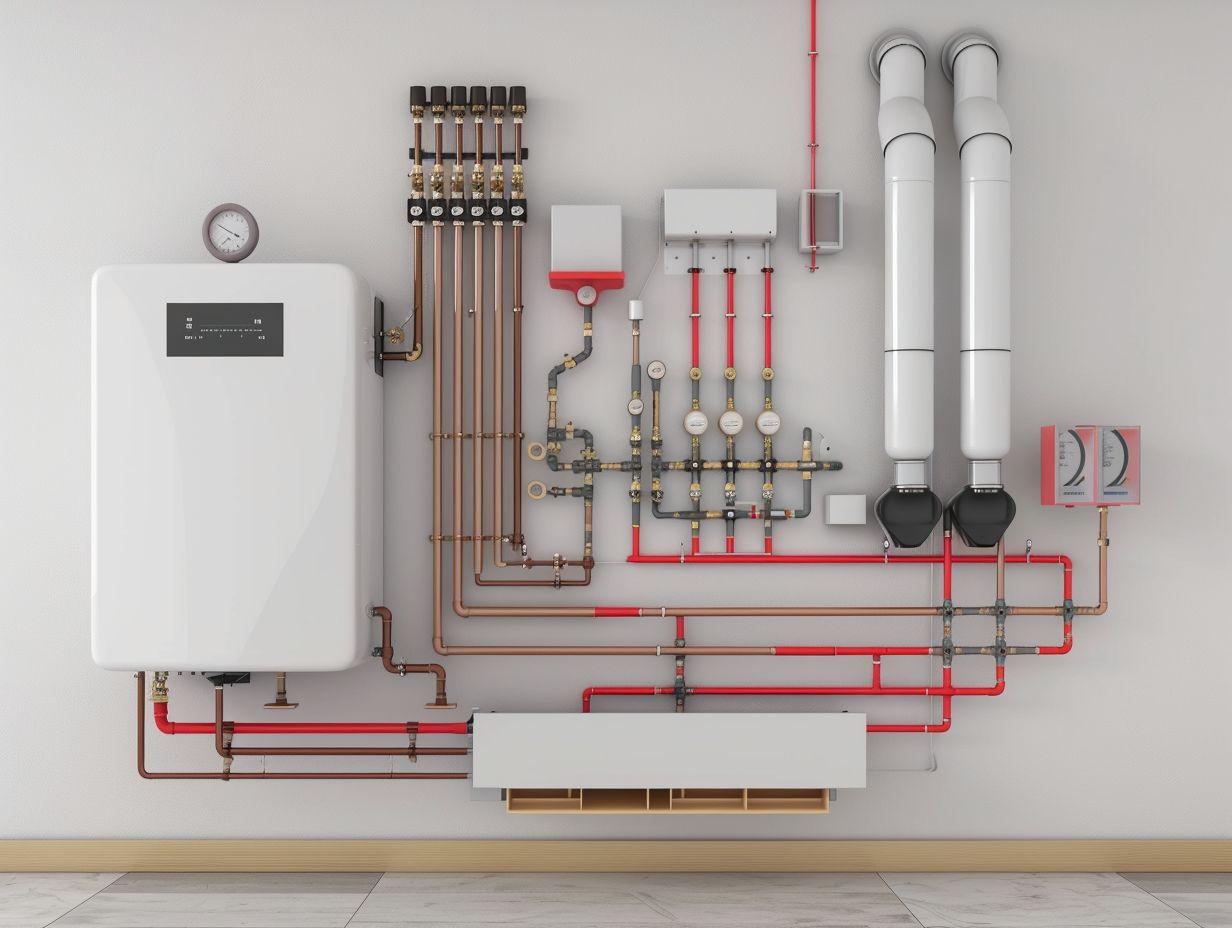
Dual Fuel Heating works by automatically switching between the two energy sources based on which is more cost-effective at the time. When temperatures are mild, the system will use electricity to heat the home. However, when temperatures drop below a certain point, the system will automatically switch to using the fossil fuel source for more efficient heating.
What are the benefits of Dual Fuel Heating?
Dual Fuel Heating offers several benefits, including cost savings, energy efficiency, and environmental friendliness. By utilising the most cost-effective energy source, homeowners can save money on their heating bills. Additionally, the system is designed to be highly energy-efficient, reducing overall energy consumption. Lastly, by using a combination of electricity and natural gas or propane, Dual Fuel Heating can help reduce a home’s carbon footprint.
Is Dual Fuel Heating suitable for all climates?
Yes, Dual Fuel Heating is suitable for all climates. The system is designed to automatically switch between energy sources based on the outdoor temperature, making it an efficient choice for both warm and cold climates.
Do I need to install separate heating systems for Dual Fuel Heating?
No, you do not need to install separate heating systems for Dual Fuel Heating. The system is designed to work with your existing heating system and will automatically switch between energy sources as needed.
Is Dual Fuel Heating easy to maintain?
Yes, Dual Fuel Heating is relatively easy to maintain. It is recommended to have the system inspected and serviced annually by a professional HVAC technician to ensure it is running efficiently and to catch any potential issues before they become major problems.

